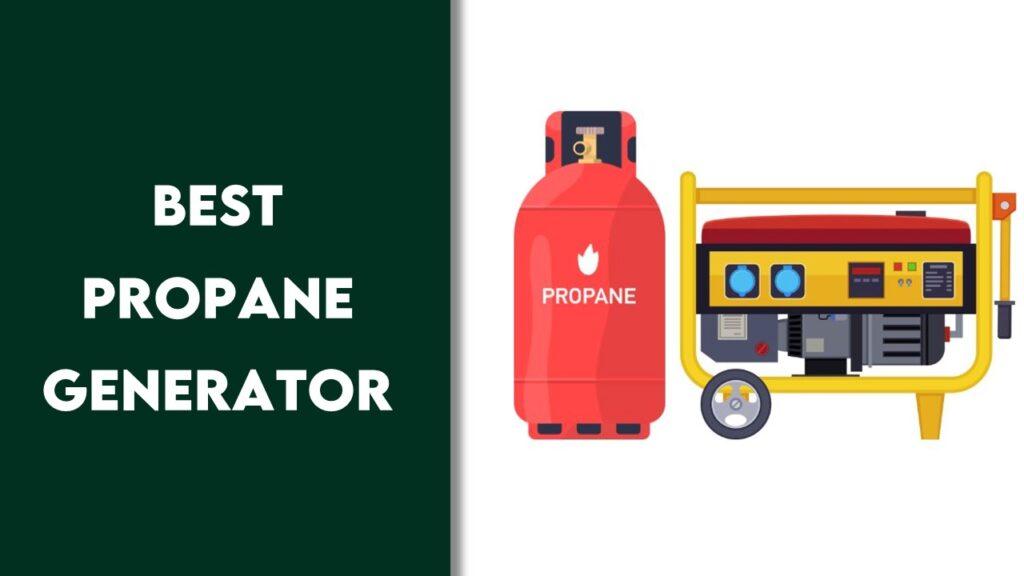
Taking care of your generator is super important, especially if you want it to last long. One often overlooked but crucial part of this care is using fuel stabilizers. You might be wondering, what are fuel stabilizers, and why are they so important? Simply put, they help keep your fuel fresh, prevent engine problems, and ensure your generator works when you need it most. In this article, we’ll explore the importance of using fuel stabilizers for generators. We’ll explain everything in simple terms, so it’s easy to understand.
What are Fuel Stabilizers?
Fuel stabilizers are like vitamins for your generator’s fuel. When fuel sits for a long time, it can go bad and cause problems. Stabilizers keep the fuel fresh and ready to use. Just like we use preservatives to keep food from spoiling, fuel stabilizers do the same for fuel, preventing it from breaking down and forming gunk.
There are different types of stabilizers for different kinds of fuel, like gasoline or diesel. It’s important to use the right one for your generator. Imagine using the wrong type of oil in your car – it just wouldn’t work well. Using the correct stabilizer ensures your generator runs smoothly.
Stabilizers prevent fuel from degrading and forming deposits that can clog the engine. This way, your generator starts easily and runs efficiently, even after sitting idle for months. It’s a small step that makes a big difference in keeping your generator in top shape.
Why Generators Need Fuel Stabilizers
Generators often sit unused for long periods, especially if they are used as a generator for emergency home backup. During these idle times, the fuel inside can degrade, causing big problems when you finally need to use your generator. Using fuel stabilizers helps prevent these issues, ensuring your generator is ready to go whenever you need it.
Idle Periods and Fuel Degradation
When a generator sits idle, the fuel inside can start to break down in just a few weeks. This is especially true for ethanol-blended fuels, which absorb moisture from the air. The result is a gunky, sticky substance that can clog your generator’s fuel system. By adding a fuel stabilizer, you prevent this breakdown and keep the fuel fresh and ready to use.
- Ethanol Issues: Ethanol-blended fuels attract moisture, leading to phase separation and fuel system clogs.
- Oxidation: Over time, fuel oxidizes and forms gums and varnish, which can block fuel lines and filters.
- Volatility Loss: Fuel loses its volatility, making it harder to ignite, leading to starting problems.
Using a fuel stabilizer during idle periods ensures that your generator’s fuel stays in good condition, ready to power up when you need it most. This small step can save you from many headaches and ensure reliable performance.
Preventing Engine Issues
Old, degraded fuel can cause a lot of problems for your generator’s engine. It can lead to hard starts, poor performance, and even engine damage. Fuel stabilizers help prevent these issues by keeping the fuel clean and free from contaminants. This means your generator will start easily and run smoothly whenever you need it.
- Hard Starts: Degraded fuel can make it difficult to start your generator.
- Poor Performance: Contaminants in old fuel can reduce engine efficiency and power.
- Engine Damage: Corrosion and deposits from degraded fuel can damage engine components.
By using fuel stabilizers, you ensure that your generator runs smoothly and efficiently, avoiding common engine problems and extending its lifespan. This proactive step helps maintain the reliability and performance of your generator.
Extending Generator Life
Using a fuel stabilizer regularly can extend the life of your generator. Clean fuel means less wear and tear on the engine and fewer clogs in the fuel system. This reduces the need for costly repairs and maintenance, saving you money in the long run.
- Reduced Wear and Tear: Clean fuel reduces strain on engine parts.
- Fewer Clogs: Stabilizers prevent build-up in fuel lines and filters.
- Cost Savings: Less frequent repairs and maintenance save you money over time.
Fuel stabilizers are essential for keeping your generator in top condition, especially during long periods of inactivity. They ensure that your generator starts easily, runs smoothly, and lasts longer, making them a smart investment for any generator owner.
How to Properly Use Fuel Stabilizers for Your Generator
Using fuel stabilizers properly is key to getting the most out of them. It’s not complicated, but following the right steps ensures your generator stays in top shape. Here’s a simple guide to help you use fuel stabilizers effectively.
Choosing the Right Stabilizer
Selecting the right fuel stabilizer for your generator is important. Different types of fuel require different stabilizers, so make sure to choose one that matches your fuel type.
- Fuel Type: Check if your generator uses gasoline, diesel, or ethanol-blended fuel.
- Compatibility: Ensure the stabilizer is compatible with your specific fuel type.
- Quality: Opt for high-quality brands that are well-reviewed and recommended.
Choosing the right stabilizer ensures it works effectively and provides the best protection for your generator’s fuel system.
Correct Dosage
Using the correct amount of fuel stabilizer is crucial. Too little won’t provide enough protection, and too much can be wasteful or even harmful.
- Read the Instructions: Always follow the manufacturer’s dosage instructions on the stabilizer bottle.
- Measure Accurately: Use a measuring cup or the cap of the stabilizer bottle to measure the correct amount.
- Mix Thoroughly: Add the stabilizer to the fuel and mix well to ensure even distribution.
Getting the dosage right ensures your fuel is adequately protected and helps your generator run smoothly.
Application Process
The process of adding a fuel stabilizer to your generator’s fuel is straightforward. Here’s how to do it step-by-step.
- Add Stabilizer Before Filling: Pour the stabilizer into your fuel container before adding fuel. This helps mix it thoroughly.
- Fill the Tank: Add fuel to the container or directly to your generator’s fuel tank.
- Run the Generator: After adding stabilized fuel, run the generator for a few minutes. This ensures the stabilized fuel circulates through the entire fuel system.
Following these steps helps the stabilizer mix well with the fuel, providing maximum protection.
Regular Maintenance Tips
Regular use of fuel stabilizers is part of good generator maintenance. Here are some tips to keep in mind.
- Before Storage: Always add a stabilizer before storing your generator for long periods.
- Regular Intervals: Even if you use your generator regularly, adding a stabilizer every few months can be beneficial.
- Check Expiry: Ensure the stabilizer you’re using is within its expiration date for optimal effectiveness.
By incorporating these tips into your maintenance routine, you ensure your generator is always ready to perform.
Using fuel stabilizers correctly is essential for maintaining your generator. By choosing the right stabilizer, measuring accurately, and following the proper application process, you keep your fuel fresh and your generator running smoothly.
Important Benefits of Using Fuel Stabilizers for Generators
Fuel stabilizers offer numerous benefits that go beyond just keeping your fuel fresh. They can enhance the performance of your generator, save you money, and even help the environment. Let’s dive into the key advantages of using fuel stabilizers for your generator.
Enhanced Engine Performance
Using fuel stabilizers can significantly improve your generator’s engine performance. By preventing fuel degradation, stabilizers help maintain clean fuel systems, leading to smoother and more efficient operation.
- Clean Fuel System: Stabilizers prevent gum and varnish build-up, keeping fuel lines and injectors clean.
- Smooth Operation: Clean fuel ensures the engine runs smoothly without stuttering or sputtering.
- Consistent Power Output: A well-maintained engine delivers consistent power output, crucial during emergencies.
By ensuring clean fuel and smooth operation, fuel stabilizers help your generator perform at its best, providing reliable power when you need it.
Cost Savings
Fuel stabilizers can save you money in the long run by reducing the need for repairs and maintenance. Clean fuel means fewer problems with the engine, leading to lower maintenance costs.
- Fewer Repairs: Preventing fuel-related issues reduces the frequency of costly repairs.
- Extended Engine Life: A well-maintained engine lasts longer, delaying the need for a replacement.
- Efficient Fuel Usage: Stabilizers ensure the fuel burns efficiently, reducing fuel consumption and costs.
These savings can add up over time, making fuel stabilizers a cost-effective solution for generator maintenance.
Environmental Benefits
Using fuel stabilizers can also have positive environmental impacts. By maintaining fuel quality and efficiency, stabilizers help reduce harmful emissions and waste.
- Reduced Emissions: Clean, stable fuel burns more efficiently, producing fewer emissions.
- Less Fuel Waste: Preventing fuel degradation means less wasted fuel, reducing environmental impact.
- Lower Carbon Footprint: Efficient operation of your generator contributes to a lower overall carbon footprint.
By using fuel stabilizers, you not only take care of your generator but also contribute to a healthier environment.
Fuel stabilizers provide numerous benefits, from enhancing engine performance and saving money to helping the environment.
Wrapping It Up!
Using fuel stabilizers for your generator is a simple yet powerful way to ensure it runs smoothly and lasts longer. By keeping the fuel fresh and preventing engine problems, stabilizers save you time, money, and headaches. Whether your generator sits idle for long periods or you use it regularly, adding a stabilizer can make a huge difference. It’s a small step that goes a long way in maintaining your generator’s health. So, next time you’re prepping your generator, don’t forget the fuel stabilizer. It’s like giving your generator a little extra care, ensuring it’s ready to power up when you need it most. Keep your generator happy and reliable with this easy maintenance tip, and enjoy peace of mind knowing it’s always in top shape.
Related FAQs
How Often Should I Add Fuel Stabilizer to My Generator?
Adding fuel stabilizer every time you refill your generator’s fuel tank is a good practice.
Can I Use Fuel Stabilizer With Ethanol-Blended Fuels?
Yes, most fuel stabilizers are designed to work with ethanol-blended fuels.
Does Fuel Stabilizer Affect Engine Performance?
No, fuel stabilizers do not negatively affect engine performance; they help keep the fuel system clean.
Is Fuel Stabilizer Necessary for Short-Term Storage?
For short-term storage, it’s not strictly necessary, but it can still help maintain fuel quality.
What Happens If I Overdose Fuel Stabilizer?
Overdosing fuel stabilizer generally won’t harm the engine but should be avoided for best results.
At our core, we’re a group of passionate generator, inverter, solar energy, battery enthusiasts. We dive deep into the world of tech, especially when it’s about powering your home, RV or outdoors. We try to provide as much value to the readers with our information and how to blog articles as possible. For affiliate articles our honest and transparent reviews of essential tech products are rooted in real-world experience. We take great satisfaction in offering unbiased evaluations, ensuring that you can make informed decisions when investing in your desired techs.




